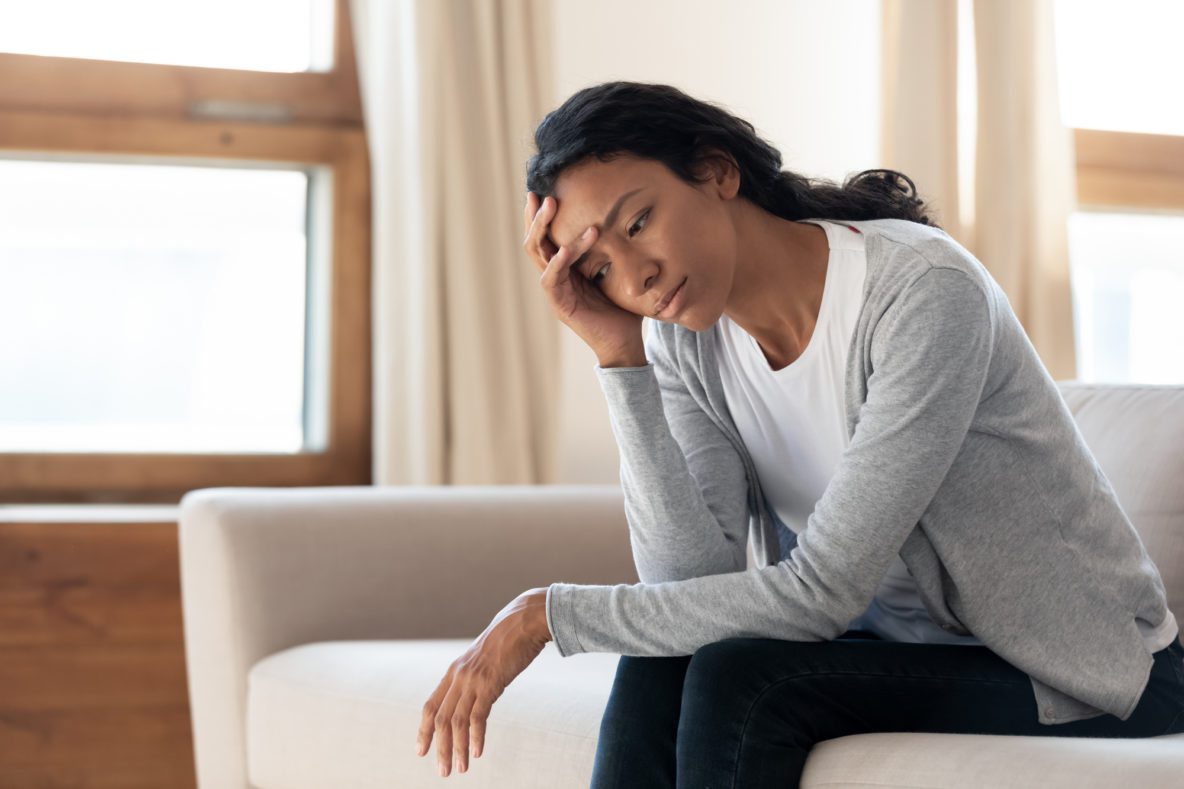I've written about anxiety in menopause before, but during the last year, not surprisingly the number of women suffering with it has shot up.
Not only has it been a hugely anxious time (at the time of writing this we are still in lockdown in the UK), but as women we are more susceptible to anxiety than men, and even more so in Europe and the USA.
Everyone feels anxious at times, it’s part of our stress response, it enables us to deal with danger so we stay alive. But when anxiety turns into excessive fear, panic and worry, it can have a devastating effect on both home and work life.
Many women find they become more anxious during peri-menopause and menopause, even if they have never had anxiety in the past. Physical symptoms can go along with these feelings, including sweating, palpitations, panic attacks, shaking, nausea and diarrhoea just a few.
You can watch the video below or listen to the podcast.
What's fuels anxiety?
As well as outside circumstances (such as global pandemics!) and psychological factors, anxiety also has physical causes that can fuel or exacerbate it.
Hormones
- Cortisol – increased stress levels stimulate constant cortisol release, and too much (or too little) cortisol can interfere with your brain neurotransmitters and increase anxiety.
Tip; Schedule in daily stress management practices, such as meditation, mindfulness, exercise, nature, hobbies, deep breathing, yoga, reading, massage, whatever helps to relax you. Adrenal adaptogenic supplements can also help.
- Sex hormones – fluctuations during peri-menopause can hugely impact how you feel. Oestrogen, progesterone and testosterone have a big role to play in how your brain works, and therefore how you feel. Changes after 40 can increase anxiety, depression and general brain function.
Tip; Include phytoestrogens in your diet to help regulate your levels; eg flaxseeds, lentils, organic soy. Consider getting your hormones tested if you are having symptoms and other things aren't working.
- Insulin – a high sugar/refined carb/processed diet can push up insulin, which can cause inflammation in the brain, altering neurotransmitters and mood
Tip; Eat a LOW GL diet, plenty of protein, healthy fats and complex carbs, limit snacking, and reduce alcohol. This will help to keep your blood sugar stable and reduce inflammation.
- Thyroid – low thyroid hormones mean a lower supply of energy to the brain, this can disrupt normal mood and function and increase anxiety
Tip; get your thyroid properly tested; ask for TSH, T4, T3 and antibodies. Nutrients to support thyroid include iron, Vitamin A, Vitamin D, zinc, selenium, iodine.
Gut health
we now know there is a direct link between your gut and your brain. If your gut isn’t happy (you may have digestive issues, but you may not), then it can contribute to low mood and/or anxiety.
Tip; look after your gut by eliminating foods that you might be sensitive to (eg gluten or dairy) for a few weeks to notice how you feel. Try foods rich in probiotics such as live yoghurt, sauerkraut, kefir, kombucha to rebalance your gut bacteria.
Nutrient deficiencies
These vitamins and minerals are crucial for brain health – Magnesium (nature’s tranquiliser!), Vitamin D (sunshine), B12, B6 (helps to make neurotransmitters like serotonin), Folate (helps B12 and iron), Iron (carries oxygen to brain cells), Omega 3 fats and zinc, among others. If we don't get enough from our diet, OR we are not absorbing them very well, deficiencies can occur and cause symptoms.
Supplements for Anxiety
If you are feeling overly anxious, eating a well balanced healthy diet is essential, but adding in certain nutrients can really help too. In addition to my basic Top 5 Supplements for Women over 40, these can also be very helpful.
- Adrenal formulas
- 5-HTP
- CBD Oil
Check out my recommended brands at Approved Vitamins.
Please check with your Doctor before taking any new supplements if you're on any medication or have a health condition.
Testing
If you think the source of your anxiety is more physical than emotional, then testing can be really useful in identifying the root cause. We specialise in state of the art hormone and health tests that can often show hidden underlying imbalances. Contact us for a free Discovery call to discuss how it could benefit you.

